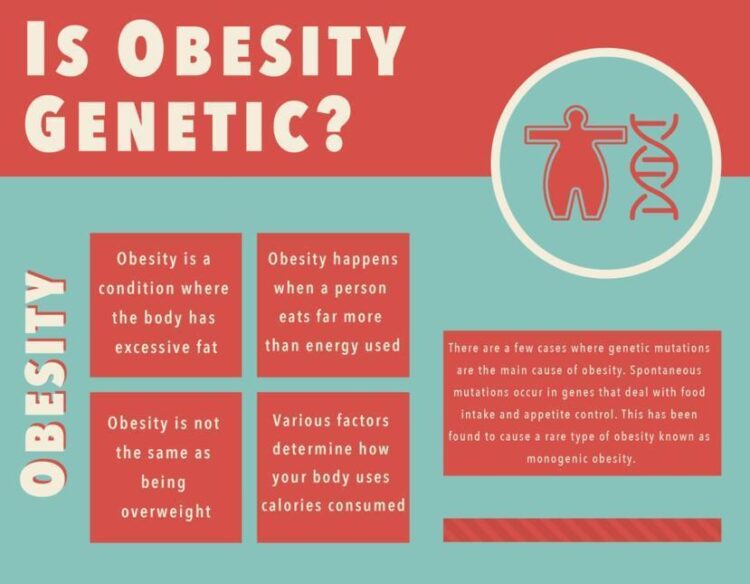Genetically predisposed obesity refers to the tendency of some individuals to gain weight due to their genetic makeup. This condition is significant because it can make weight loss more challenging, even when adopting a healthy lifestyle.
Understanding the impact of genetics and lifestyle on obesity is crucial for developing effective weight loss strategies.
Now, let us talk about it in greater detail.
Genetic Factors in Obesity

Obesity can be influenced by both monogenic and polygenic factors. Monogenic obesity results from mutations in a single gene, such as the melanocortin-4 receptor (MC4R) gene.
Polygenic obesity involves multiple genes, including the FTO gene, which collectively increase the risk of weight gain. These genetic factors can affect appetite, metabolism, and how the body stores fat, making weight loss more difficult.
While genetics play a significant role, lifestyle factors can influence genetic predisposition. For instance, a person with a genetic tendency to gain weight might mitigate this risk through diet and exercise.
Research has shown that individuals with high-risk genes for obesity can achieve significant weight loss through lifestyle changes. Case studies highlight how environmental factors like physical activity and dietary habits interact with genetic predispositions to affect obesity outcomes.
Role of a Healthy Lifestyle in Mitigating Genetic Risk
A balanced diet is essential for weight loss, especially for those genetically predisposed to obesity. Reducing the intake of fried foods and sugar-sweetened beverages can significantly lower calorie consumption.
Including whole foods, fruits, and vegetables into the diet provides essential nutrients and helps maintain a healthy weight. Studies have shown that people who follow a nutrient-dense diet are more successful in achieving and maintaining weight loss.
Regular exercise is vital for combating genetic predisposition to obesity. Activities such as walking, swimming, and strength training help burn calories and build muscle, which increases metabolism. Research evidence supports the effectiveness of physical activity in reducing obesity risk, showing that even moderate exercise can lead to substantial weight loss over time.
Behavioral modifications are crucial for maintaining a healthy lifestyle and achieving weight loss. Avoiding sedentary behaviors, such as excessive sitting or lying down, can help prevent weight gain.
Reducing screen time and increasing active leisure activities, like hiking or playing sports, promote a more active lifestyle. Strategies such as setting realistic goals, tracking progress, and seeking support from friends and family can help individuals maintain their weight loss efforts.
Personalized Approaches to Weight Management

Genetic screening and personalized health assessments are important for tailoring weight loss programs to individual needs.
Understanding hormonal imbalances, such as those involving thyroid hormones or insulin, can provide insights into weight management challenges. Personalized approaches that consider genetic and hormonal factors can lead to more effective weight loss strategies.
Integrative approaches to weight loss involve a combination of diet, exercise, and mental health support. These holistic health programs address the multiple factors that contribute to obesity.
Healthcare professionals play a crucial role in designing and implementing personalized programs, providing guidance, and monitoring progress to ensure long-term success.
 Hi Boox Popular Magazine 2024
Hi Boox Popular Magazine 2024



